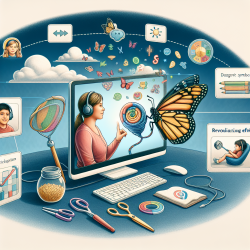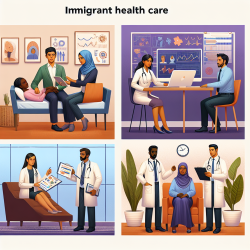Here are some key points from the research that practitioners can implement or consider for further research:
- Understanding Licensing Barriers: The duplicative nature of state licensing processes adds unnecessary costs and delays. By understanding these barriers, practitioners can advocate for streamlined processes.
- Advocating for Change: Engage with professional organizations like the American Speech-Language-Hearing Association (ASHA) to push for a national initiative on licensure portability. A unified voice can be powerful in bringing about change.
- Utilizing Telepractice: Telepractice allows SLPs to provide services flexibly and cost-effectively. Practitioners should familiarize themselves with telepractice technologies and best practices to maximize their reach and impact.
- Continuing Education: Stay updated on the latest research and developments in telepractice and licensure portability. This will not only enhance your skills but also prepare you to adapt to future changes in the field.
Research indicates that speech therapy delivered through telepractice has comparable quality and outcomes as in-person services (American Speech-Language-Hearing Association, 2005; Boisvert et al., 2010; Boswell, 2007; Grogan-Johnson et al., 2010; Grogan-Johson et al., 2011). Despite the technological advancements, the lack of license portability remains a significant hurdle. The processing times for applications can range from weeks to months, and fees can be as high as $150 or more. Some states even require additional steps like fingerprinting, which adds to the complexity.
The importance of licensure portability was recognized fifteen years ago when the United States Congress passed the Telecommunications Act of 1996, urging the healthcare industry to develop multi-state licensure models. The National Council of State Boards of Nursing (NCSBN) has successfully implemented the Nurse License Compact (NLC), allowing nurses licensed in one compact state to practice in others. It's time for the speech-language pathology field to follow suit.
True license portability would facilitate inter-state practice, enabling SLPs who live near state lines to serve adjacent states where shortages may exist. This would create a more mobile, flexible workforce, better positioned to use telepractice to address the chronic shortage of SLPs. A national initiative for licensure portability is essential to unleash the full potential of telepractice, reduce costs, increase access to services, and improve outcomes for K-12 students and clients in diverse settings.
To read the original research paper, please follow this link: The Time Has Come for Speech-Language Pathology License Portability!










